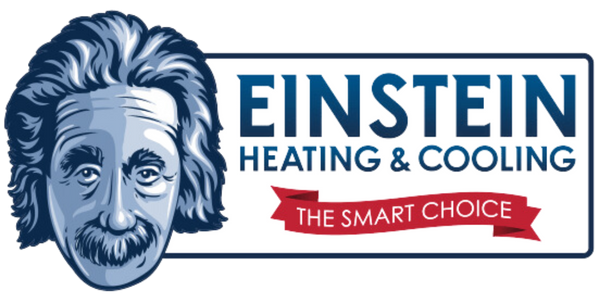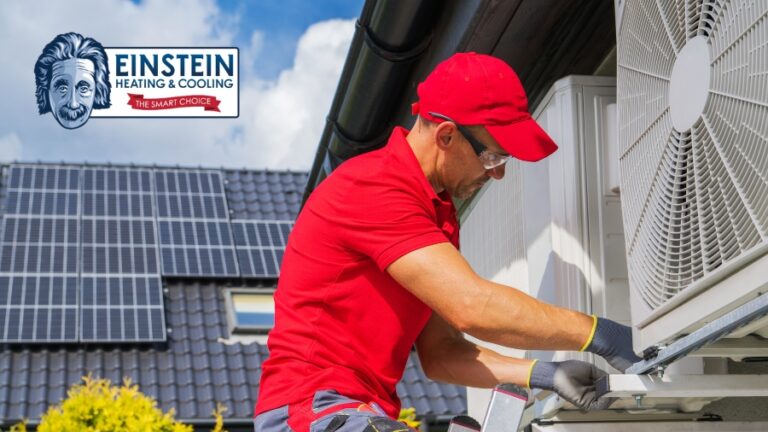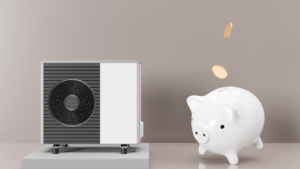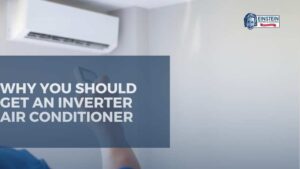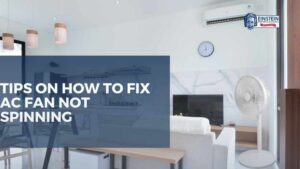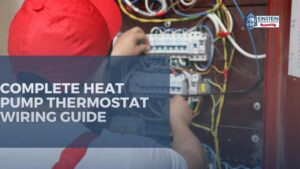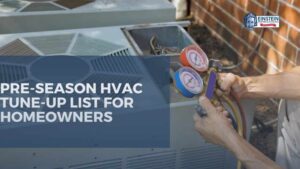HVAC preventive maintenance is essential for several reasons, including ensuring efficiency, comfort, and cost savings. Regular maintenance helps keep your heating, ventilation, and air conditioning (HVAC) system in optimal condition, which offers various benefits. Here are some key reasons why HVAC preventive maintenance is crucial:
- Enhanced Energy Efficiency: A well-maintained HVAC system operates more efficiently, which translates into lower energy consumption and reduced utility bills. Regular maintenance includes tasks like cleaning or replacing air filters, inspecting and cleaning coils, and lubricating moving parts. These actions optimize the system’s performance, allowing it to function with less strain and use less energy.
Here’s why HVAC preventive maintenance is essential for enhanced energy efficiency
- Reduced Energy Consumption: Regular maintenance ensures that your HVAC system is operating at peak efficiency. Dirty filters, clogged coils, and other neglected components can hinder airflow and make the system work harder to achieve the desired temperature. By cleaning or replacing filters, cleaning coils, and checking overall system performance, preventive maintenance helps your HVAC system run more efficiently, resulting in reduced energy consumption.
- Optimal System Performance: During preventive maintenance, HVAC technicians inspect and tune-up various components of the system. They check for any issues that may affect the system’s performance, such as worn-out belts, loose electrical connections, or faulty thermostats. By identifying and addressing these problems, preventive maintenance optimizes the system’s performance, allowing it to operate smoothly and efficiently.
- Longer Equipment Lifespan: HVAC systems that receive regular maintenance tend to last longer. When components are dirty, damaged, or not functioning correctly, the system is forced to work harder, leading to increased wear and tear. By keeping the system clean, lubricated, and properly adjusted, preventive maintenance reduces the strain on the equipment, extending its lifespan and delaying the need for costly replacements.
- Improved Heat Transfer: In both heating and cooling systems, heat transfer is a crucial process. Over time, dust, dirt, and debris can accumulate on coils and other components, hindering the transfer of heat. During preventive maintenance, technicians clean and inspect coils, ensuring they are free from debris and able to efficiently transfer heat. This allows the system to heat or cool the air more effectively, improving energy efficiency.
- Proper Airflow: Airflow is essential for an HVAC system to function optimally. Blockages, leaks, or obstructions in the ductwork can impede airflow, forcing the system to work harder to distribute conditioned air. During maintenance, technicians inspect the ductwork, seal any leaks, and remove any blockages, ensuring proper airflow. This improves energy efficiency by allowing the system to distribute conditioned air more effectively throughout the space.
- Energy Savings and Lower Utility Bills: Enhanced energy efficiency resulting from preventive maintenance directly translates into energy savings and lower utility bills. When your HVAC system operates efficiently, it requires less energy to heat or cool your space. This reduces the overall energy consumption, resulting in lower utility bills and significant cost savings over time.
By investing in HVAC preventive maintenance, you can enhance the energy efficiency of your system. This not only reduces your environmental impact but also saves you money on energy bills while ensuring that your HVAC equipment operates optimally for years to come.
- Improved System Lifespan: HVAC systems that receive regular maintenance tend to have a longer lifespan compared to those that are neglected. By addressing minor issues and performing routine inspections, technicians can identify and resolve potential problems before they escalate. This proactive approach prevents major breakdowns and extends the overall lifespan of the equipment, saving you money on premature replacements.
HVAC preventive maintenance is essential for improving the lifespan of your system. Here’s why:
- Early Detection of Issues: Regular maintenance allows HVAC technicians to identify and address potential issues before they escalate into major problems. They can inspect components, such as motors, belts, electrical connections, and refrigerant levels, to ensure everything is in proper working condition. By detecting and resolving minor issues early on, preventive maintenance prevents them from causing more significant damage to the system, thereby extending its lifespan.
- Reduced Wear and Tear: HVAC systems experience wear and tear over time due to constant usage. However, neglecting maintenance can accelerate this process. Dust, dirt, and debris accumulation, as well as lack of lubrication, can strain the system’s components, leading to increased wear and potential breakdowns. Regular maintenance includes cleaning and lubricating various parts, which reduces the wear and tear on the system, helping it operate smoothly and prolonging its lifespan.
- Proper System Calibration: Calibration is crucial for optimal system performance. During preventive maintenance, technicians check and calibrate thermostats, controls, and sensors to ensure they are accurately measuring and maintaining the desired temperature settings. This precision in calibration helps the system operate efficiently and prevents it from overworking or cycling excessively, which can contribute to premature wear and reduced lifespan.
- Improved Airflow and Heat Transfer: Adequate airflow and efficient heat transfer are vital for HVAC systems. Neglected maintenance can result in clogged filters, dirty coils, and blocked ducts, which can restrict airflow and hinder heat transfer. This puts extra strain on the system, leading to reduced efficiency and potentially damaging the components. Regular maintenance involves cleaning filters, coils, and ducts, ensuring proper airflow and efficient heat transfer. This not only improves system performance but also extends its lifespan.
- Manufacturer Warranty Compliance: Most HVAC systems come with manufacturer warranties that require regular maintenance to remain valid. Neglecting maintenance can void these warranties, leaving you responsible for repair or replacement costs. By adhering to the manufacturer’s maintenance requirements, you not only ensure warranty compliance but also receive the benefits of professional servicing that can contribute to a longer system lifespan.
- Preserving Overall System Integrity: HVAC systems are complex, interconnected systems. Neglected maintenance can lead to issues in one component affecting other parts of the system. For example, a dirty coil can cause the compressor to work harder, which can lead to premature failure. By maintaining the integrity of the entire system through regular maintenance, you reduce the risk of cascading failures and prolong the overall lifespan of the HVAC system.
By investing in HVAC preventive maintenance, you can detect and address issues early, reduce wear and tear, ensure proper calibration, improve airflow and heat transfer, comply with warranty requirements, and preserve the overall integrity of the system. These factors collectively contribute to extending the lifespan of your HVAC system and maximizing its value over time.
- Consistent Comfort: A well-maintained HVAC system ensures consistent comfort throughout your home or business. Regular maintenance includes checking thermostat settings, calibrating controls, and inspecting ductwork for leaks or blockages. By keeping the system properly calibrated and in good working condition, you can maintain optimal indoor temperatures, humidity levels, and airflow, resulting in improved comfort for occupants.
HVAC preventive maintenance is essential for ensuring consistent comfort in your home or business. Here’s why:
- Optimal Temperature Control: Regular maintenance helps keep your HVAC system operating at its best, allowing it to effectively regulate indoor temperatures. Technicians inspect and calibrate thermostats, check temperature differentials, and ensure proper airflow to maintain consistent comfort throughout your space. This means you can rely on your HVAC system to deliver the desired temperatures consistently, regardless of external weather conditions.
- Balanced Airflow: HVAC systems distribute conditioned air through ductwork to maintain a comfortable environment. Over time, ducts can develop leaks, blockages, or imbalances, which can disrupt airflow and compromise comfort. During preventive maintenance, technicians inspect and clean ductwork, seal leaks, and ensure proper air distribution. This helps maintain balanced airflow, preventing hot or cold spots and ensuring consistent comfort in every area.
- Humidity Control: HVAC systems play a crucial role in managing indoor humidity levels. Excessive humidity can lead to discomfort, mold growth, and poor indoor air quality. Preventive maintenance includes checking and adjusting humidity controls, cleaning or replacing humidifier components, and inspecting condensate drains. By maintaining proper humidity levels, the HVAC system contributes to consistent comfort and a healthier indoor environment.
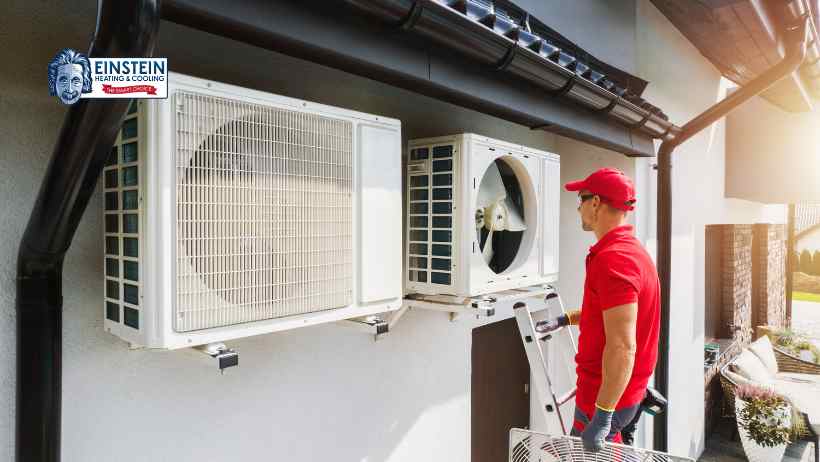
- Noise Reduction: Unusual noises from your HVAC system can be disruptive and affect your comfort. Regular maintenance involves inspecting and lubricating moving parts, tightening loose connections, and addressing any vibrations or unusual sounds. By keeping the system well-maintained, preventive maintenance helps reduce noise levels, allowing you to enjoy a peaceful and comfortable environment.
- Improved Indoor Air Quality: HVAC systems impact indoor air quality, which directly affects comfort. Neglected maintenance can result in dirty filters, clogged coils, and buildup of allergens and pollutants. These factors can cause unpleasant odors, trigger allergies, and compromise respiratory health. Regular maintenance includes cleaning or replacing filters, inspecting and cleaning coils, and ensuring proper ventilation. This helps remove contaminants and improve indoor air quality, creating a healthier and more comfortable living or working environment.
- Reliable Operation: With regular maintenance, your HVAC system is less likely to experience unexpected breakdowns or malfunctions. Technicians identify and resolve minor issues during preventive maintenance visits, preventing them from developing into major problems that can disrupt comfort. By ensuring reliable operation, preventive maintenance gives you peace of mind, knowing that your HVAC system will consistently deliver the comfort you need.
By prioritizing HVAC preventive maintenance, you can enjoy consistent comfort in your space. From optimal temperature control and balanced airflow to humidity control, noise reduction, improved indoor air quality, and reliable operation, regular maintenance keeps your HVAC system in peak condition, ensuring a comfortable environment for you and everyone who shares your space.
- Enhanced Indoor Air Quality: HVAC systems play a crucial role in maintaining indoor air quality. Dust, dirt, allergens, and pollutants can accumulate within the system over time, leading to poor air quality and potential health issues. Regular maintenance involves cleaning and sanitizing various components, such as air filters, coils, and condensate drains, to remove contaminants and ensure clean, fresh indoor air.
HVAC preventive maintenance is essential for enhancing indoor air quality. Here’s why:
- Removal of Contaminants: Over time, dust, dirt, pollen, pet dander, and other airborne particles can accumulate within the HVAC system. These contaminants can then be circulated throughout your home or business, leading to poor indoor air quality. Regular maintenance includes cleaning or replacing filters, which helps remove these particles from the air, preventing them from being recirculated and improving the overall air quality.
- Mold and Mildew Prevention: HVAC systems create a conducive environment for the growth of mold and mildew if not properly maintained. Moisture can accumulate in cooling coils, drip pans, and ductwork, providing a breeding ground for these microorganisms. During preventive maintenance, technicians inspect and clean these components, ensuring that moisture is effectively drained and that mold and mildew growth is minimized. This helps prevent the spread of mold spores and maintains a healthier indoor environment.
- Cleaning of Ductwork: The ductwork in your HVAC system can harbor dust, debris, allergens, and even pests. If left unaddressed, these contaminants can be distributed throughout your space, negatively impacting indoor air quality. Regular maintenance includes cleaning the ductwork, removing accumulated dust and debris, and ensuring that the air flowing through the ducts is clean and uncontaminated. This promotes better indoor air quality and reduces the risk of respiratory issues.
- Inspection of Ventilation: Adequate ventilation is crucial for maintaining good indoor air quality. During preventive maintenance, technicians inspect the ventilation system to ensure that it is functioning properly. This includes checking dampers, air intakes, and exhaust vents to ensure they are clear of obstructions and operating as intended. Proper ventilation helps remove stale air, odors, and pollutants from your space, promoting fresh and clean indoor air.
- Carbon Monoxide Safety: HVAC systems that utilize combustion processes, such as gas furnaces, can potentially produce carbon monoxide (CO). CO is a dangerous and odorless gas that can be harmful or even fatal if not properly vented. Regular maintenance includes inspecting and cleaning combustion components, checking flue systems, and ensuring proper exhaust venting. This helps prevent the risk of CO leaks and ensures a safe indoor environment for occupants.
- Improved Health and Well-being: Indoor air quality has a direct impact on the health and well-being of occupants. Poor air quality can lead to respiratory issues, allergies, asthma, and other health problems. By maintaining a clean and well-functioning HVAC system through preventive maintenance, you can significantly improve the indoor air quality, creating a healthier and more comfortable living or working environment for everyone.
By prioritizing HVAC preventive maintenance, you can effectively address and improve indoor air quality concerns. From removing contaminants and preventing mold growth to cleaning ductwork, ensuring proper ventilation, addressing carbon monoxide safety, and promoting better health and well-being, regular maintenance plays a vital role in enhancing indoor air quality and creating a healthier indoor environment.
- Cost Savings: While investing in HVAC preventive maintenance may seem like an added expense, it can actually save you money in the long run. By detecting and resolving minor issues early on, you can avoid costly repairs or system failures that could result from neglected maintenance. Additionally, the improved energy efficiency mentioned earlier leads to reduced energy bills, further contributing to long-term cost savings.
HVAC preventive maintenance is essential for cost savings. Here’s why:
- Energy Efficiency: Regular maintenance helps optimize the energy efficiency of your HVAC system. Dirty filters, clogged coils, and other neglected components can hinder airflow and make the system work harder to achieve the desired temperature. By cleaning or replacing filters, cleaning coils, and ensuring proper system performance, preventive maintenance allows the system to operate more efficiently. This results in reduced energy consumption and lower utility bills, leading to significant cost savings over time.
- Avoidance of Costly Repairs: Neglected HVAC systems are more prone to breakdowns and major malfunctions. By performing regular maintenance, HVAC technicians can detect and address minor issues before they escalate into costly repairs. They can identify worn-out parts, loose connections, or potential system failures and take proactive measures to resolve them. This helps prevent sudden breakdowns, emergency service calls, and the need for expensive repairs, saving you money in the long run.
- Extended Equipment Lifespan: HVAC systems that receive regular maintenance tend to have a longer lifespan compared to those that are neglected. During preventive maintenance, technicians clean and lubricate various components, inspect for wear and tear, and ensure proper system operation. This reduces the strain on the equipment, prevents major breakdowns, and extends the overall lifespan of the system. By avoiding premature replacements, you save significant costs associated with purchasing new HVAC equipment.
- Warranty Compliance: Many HVAC systems come with manufacturer warranties that require regular maintenance to remain valid. Neglecting maintenance can void these warranties, leaving you responsible for repair or replacement costs. By adhering to the manufacturer’s maintenance requirements, you ensure warranty compliance and protect yourself from unexpected expenses related to repairs or replacements.
- Improved System Performance: Well-maintained HVAC systems perform at their best, delivering optimal heating and cooling performance. Regular maintenance includes tasks such as calibration, cleaning, and adjusting components to ensure proper system operation. This results in consistent and reliable performance, maintaining comfort levels and avoiding inefficient operation that can lead to higher energy costs.
- Preservation of Property Value: A properly functioning HVAC system contributes to the overall value of your property. Neglected systems can lead to uncomfortable indoor environments, poor air quality, and reduced property value. By investing in preventive maintenance, you maintain a comfortable and healthy living or working space, preserving the value of your property over time.
By investing in HVAC preventive maintenance, you can achieve significant cost savings. Improved energy efficiency, avoidance of costly repairs, extended equipment lifespan, warranty compliance, improved system performance, and preservation of property value all contribute to reducing expenses associated with HVAC operation. Additionally, the long-term cost savings from lower utility bills and fewer major repairs make preventive maintenance a worthwhile investment.
- Peace of Mind: Knowing that your HVAC system is regularly maintained provides peace of mind. You can have confidence that it will operate reliably and efficiently, reducing the risk of unexpected breakdowns or uncomfortable temperature fluctuations. Regular maintenance also helps you stay compliant with warranty requirements, ensuring that you’re covered in case of any major issues.
HVAC preventive maintenance is essential for providing peace of mind. Here’s why:
- Reliable System Operation: Regular maintenance ensures that your HVAC system operates reliably. HVAC technicians inspect and tune-up various components, check for potential issues, and address them proactively. By identifying and resolving problems before they cause major breakdowns or malfunctions, preventive maintenance helps ensure that your HVAC system consistently delivers the desired heating and cooling performance. This reliability gives you peace of mind, knowing that your system will work when you need it the most.
- Reduced Risk of Unexpected Breakdowns: Neglected HVAC systems are more prone to unexpected breakdowns, especially during extreme weather conditions. By scheduling regular maintenance, you significantly reduce the risk of sudden system failures. Technicians can identify and address minor issues, such as worn-out parts or loose connections, preventing them from turning into major problems that leave you without heating or cooling when you need it. This reduces the inconvenience, discomfort, and potential emergency repair costs associated with unexpected breakdowns.
- Enhanced Safety: HVAC systems involve complex mechanisms, electrical components, and potential safety hazards. Regular maintenance helps ensure that your system operates safely. Technicians inspect electrical connections, gas lines (if applicable), combustion components, and other critical elements to identify and resolve safety concerns. This minimizes the risk of electrical malfunctions, gas leaks, or other hazardous situations, providing peace of mind that your HVAC system is operating safely.
- Improved Indoor Air Quality: Indoor air quality has a direct impact on health and well-being. Neglected HVAC systems can contribute to poor air quality due to dust, debris, and allergen buildup. Regular maintenance includes cleaning filters, inspecting and cleaning coils, and addressing ventilation issues. By improving indoor air quality through preventive maintenance, you can have peace of mind, knowing that you and your family or occupants are breathing cleaner and healthier air.
- Compliance with Manufacturer’s Recommendations: HVAC systems often come with manufacturer recommendations for regular maintenance. Following these guidelines not only helps maintain the system’s performance but also ensures compliance with warranty requirements. By scheduling preventive maintenance, you can have peace of mind, knowing that you are taking the necessary steps to keep your warranty valid and protect yourself from unexpected repair or replacement costs.
- Expert Insight and Professional Service: When you invest in HVAC preventive maintenance, you benefit from the expertise and knowledge of HVAC technicians. They have the training and experience to thoroughly inspect, clean, and tune-up your system. They can provide insights into the condition of your HVAC system, offer recommendations for improvements or upgrades, and answer any questions or concerns you may have. This professional service gives you confidence that your HVAC system is in capable hands, further enhancing your peace of mind.
By prioritizing HVAC preventive maintenance, you gain peace of mind through reliable system operation, reduced risk of breakdowns, enhanced safety, improved indoor air quality, compliance with manufacturer recommendations, and the expertise of HVAC professionals. Knowing that your HVAC system is well-maintained and functioning optimally allows you to relax and enjoy a comfortable and worry-free indoor environment.
With HVAC preventive maintenance from Einstein Heating and Cooling, you can enjoy a range of benefits, including improved energy efficiency, extended system lifespan, enhanced comfort, better indoor air quality, cost savings, and peace of mind.
